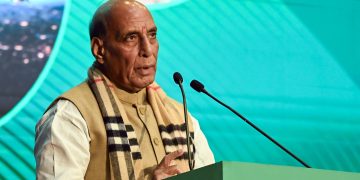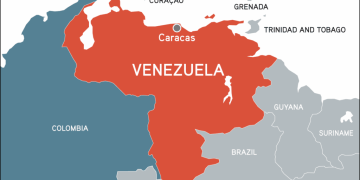Dani Rodrik
We need new ideas to address the three greatest economic challenges of our time: climate change, the erosion of the middle class, and poverty. The first is an existential threat to our physical environment; the second drives polarisation and undermines democracy; and the third is a moral scourge for all of us. Yet with authoritarianism and economic nationalism on the rise, there seems to be little reason for optimism on any of these fronts.
In my new book, Shared Prosperity in a Fractured World, I point out that solutions to these problems already exist in prevailing practices around the world. They often remain below the radar, though, or they are disregarded because they depart from conventional approaches.
To be sure, on their face, our three big challenges are vastly different, and efforts to address them often seem to be in tension with each other. Many view the green transition as incompatible with economic growth, and shoring up the middle class in advanced economies as inimical to the interests of developing countries. But they all entail a common, global task: driving a structural transformation of our economies to boost activities that are green and conducive to better, more productive jobs.
Traditionally, industrial policies played a critical role in the process of economic transformation, first in the advanced economies and then in successful East Asian countries. Today, we need an updated version of the same strategy, taking into account the requirements of the green transition and the reality that manufacturing is no longer a source of job creation (even in developing countries).
We have had significant success already in renewable energy. While economists have long advocated carbon taxes or equivalent cap-and-trade schemes as the most efficient way to reduce emissions, the real, spectacular gains in this domain have come through China’s green industrial policies. Oriented around national goals but implemented largely at the local level by municipal authorities, these policies have reduced the costs of solar, wind, and electric batteries to levels that now make renewable energy cheaper than fossil fuels. The green transition has accelerated rapidly as a result, leading even some of the most pessimistic observers to believe climate disaster may be averted.
China’s approach is emblematic of a new style of industrial policy that differs significantly from the conventional image. It entails significant collaboration among the national government, sub-national governments, and business interests. While subsidies played a significant role, they were only one tool among many others, including procurement policies and public venture capital. China’s approach is better characterised as experimental and iterative than as top-down with strict conditionality.
Can a similar approach also help deliver the good jobs and the productive transformation that preserving the middle class and reducing poverty require? Unfortunately, in developed and developing countries alike, industrial policies have continued to focus on manufacturing sectors, even when the goal has been to generate or maintain employment. To be sure, manufacturing remains relevant and important for the green transition, to ensure supply-chain resilience, and for national security. But automation and global competition have made it a labour-shedding sector – even in China, which remains the world’s manufacturing superpower. We have little choice but to rely on services for the kinds of productive jobs that serve as a pathway to the middle class.
Fortunately, in advanced and developing economies alike, there are many sub-national experiments in which partnerships between government agencies and the private sector or civic groups are delivering meaningful economic transformations. These local, place-based initiatives may not look like traditional industrial policies, but they are similar to China’s strategy. They involve iterative collaboration and the provision of public inputs (skills training, business extension, regulatory assistance, and green-field sites) alongside subsidies to identify new business opportunities and mitigate constraints.
National economic authorities can build on these models. Former US President Joe Biden’s administration implemented “challenges” in which local economic development agencies were invited to submit proposals for federal funding. Such an approach not only provides new resources but also incentivises local actors to overcome their collective action problems and develop a common vision for future development. Unfortunately, the scale of these programmes paled in comparison to the administration’s landmark industrial policies, the CHIPS and Science Act, and the Inflation Reduction Act, both of which were oriented mainly toward manufacturing.
National governments, especially in advanced economies, can also play a huge role in steering innovation in a more labour-friendly manner. Many service industries – retail, warehousing, logistics – have already benefited from the introduction of new digital technologies, but private corporations do not always have workers’ interests in mind. They prefer to use new technology to monitor and eke out more from workers, rather than to give them autonomy and enable them to perform a broader range of tasks. Generating the technologies that would empower workers in traditionally low-paying jobs such as care, retail, and food services requires a dedicated public effort, similar to what we need for renewables.
My book offers both a warning and grounds for hope. I show that our current policy menu is inadequate to the tasks at hand and sure to create serious conflicts among the objectives. To address climate change, rebuild the middle class, and reduce global poverty simultaneously, we need to depart from established ways of thinking and consider new approaches. The good news is that it is neither infeasible nor too late to embark on a better path. The seeds of these innovative approaches already exist within prevailing practices around the world. We don’t need a revolution, only a reconfiguration of our priorities and policies.
Domestic politics and a lack of global cooperation often rule out what economists and other technocrats would consider preferred options. But they rule in other approaches that are often more effective in the real world.
The writer, Professor of International Political Economy at Harvard Kennedy School, is Past President of the International Economic Association. ©Project Syndicate






































